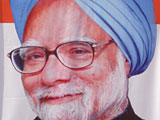Another Go at India-Pakistan Dialogue
By Harsh V Pant for ISN
As US Secretary of State Hillary Clinton was visiting Pakistan to assuage growing concerns about the state of US-Pakistan ties, Indian Prime Minister Manmohan Singh was in the Indian state of Jammu and Kashmir declaring that if Pakistan showed “sincerity and good faith,” India “will not be found wanting in its response.
“The hand of friendship that we have extended should be carried forward. This is in the interest of people of India and Pakistan,” he said, underlining that terrorists “want permanent enmity to prevail between the two countries,” though he avoided mentioning the November 2008 Mumbai attacks or Kashmir.
At a later press conference, Singh clarified that New Delhi’s demand that Islamabad put terror groups under “effective control” was “not a pre-condition” for the resumption of India-Pakistan talks, rather a “practical” way forward because “we are a democracy and if day in and day out terrorist attacks continue to take the precious lives of our citizens, we cannot create a mahaul [atmosphere] for meaningful negotiations.”
And now, speculation is building that India-Pakistan dialogue is about to be rejuvenated. After the Mumbai terror attacks last year, India suspended dialogue with Pakistan, asking it to first dismantle the terrorist infrastructure in its territory directed at India.
Though India still remains dissatisfied with Pakistan’s efforts to bring to justice all the perpetrators of last year’s assault on Mumbai, there is growing pressure on New Delhi to re-start the dialogue.
The US has asked India to talk with Pakistan. When Clinton visited Pakistan recently, she found a nuclear-armed state consumed by doubts about the value of its alliance with Washington and resentful of ever-rising American demands to do more.
The US is also struggling to address Pakistan’s concerns over the conditions imposed on a new American aid package of $7.5 billion over five years that the Pakistani military denounced as designed to interfere in the country’s internal affairs.
The perception in Islamabad is that the US values its ties with India more and so is reluctant to push India to address Pakistan’s concerns.
Meanwhile, there are growing voices within India itself calling for a dialogue with Pakistan, especially as it is not clear if the Indian policy of ‘no talks’ is working. After India decided to put diplomatic pressure on Pakistan after the Mumbai incident, Pakistan was forced to concede that the perpetrators of the atrocity had come from its territory and agreed, in principle, to prosecute them. The US has also continued to pressure Pakistan by demanding that it should bring to justice all those involved in the attacks.
Though Pakistan continues to drag its feet on the actual prosecution of the main culprits - especially Mohammed Saeed, Jama’at-ud-Da’wah chief - Pakistan’s acceptance of the trouble emanating from its borders is viewed by many in India as a starting point for future negotiations.
India realizes that there are clear limits to its policy of no negotiations with Pakistan given that such a policy stance does not lessen the conflict or remove the sources of hostility across the border.
Pakistan itself has been quite keen on re-starting the dialogue process. Reports have emerged that Pakistan is contemplating appointing a former foreign secretary, Riaz Mohammad Khan, as its special envoy on Indian affairs.
Yet it would be a folly to view these trends with any great degree of expectation.
Pakistan is under siege; the nation reeling under a relentless wave of terror strikes, targeted primarily against security forces, police and government officials. The civilian government of Asaf Ali Zardari has lost all credibility, and the military is once again ascendant.
The armed forces of Pakistan have historically viewed themselves as guardians of Pakistani identity, and the need to view India as an adversary has been a constant in Pakistan’s politics and foreign policy since its inception.
Significant sections of the Pakistani military and intelligence services continue to see themselves in a permanent state of conflict with India and have little incentive to moderate their behavior as a continuing conflict with India is the raison d’etre of their pre-eminent position in the Pakistani society.
At a time when Pakistan’s Islamic identity is under siege because of its cooperation with the US in the war on terror, the need to define itself in opposition to India remains even stronger. With the uncertainty of American plans in Afghanistan, and the strong sentiment in Pakistan that India is creating trouble in the restive province of Balochistan and the tribal areas, it is highly unlikely that the army will abandon the militant groups upon which it has relied to fight as proxies against India in Afghanistan and Kashmir.
The Indo-Pak peace process also hinges on the ability of Pakistan’s political establishment to control terrorist groups from wreaking havoc in India. It is doubtful how much control the civilian government in Islamabad can exert given that various terrorist outfits have vowed to continue their jihad in Kashmir.
The Frankenstein monster that the Pakistani state created to further its strategic objectives vis-à-vis its adversaries has now turned against it and threatens to devour any future attempts at Indo-Pak reconciliation.
Moreover, there is little evidence of any significant Pakistani effort to dismantle the infrastructure of terrorism such as communications, launching pads and training camps on its eastern border with India. It is not within India’s control to get Pakistan to crack down on non-state actors.
While the Indian prime minister may have made a significant move in re-starting India-Pakistan dialogue, and while international opinion might also be gravitating towards that possibility, the ground realities in South Asia call for some pessimism.
Pakistan is facing multiple challenges, and the dialogue process per se might be inadequate for meeting these challenges. The world would do well to take that into account as India and Pakistan embark on yet another tryst with the so-called peace process.

